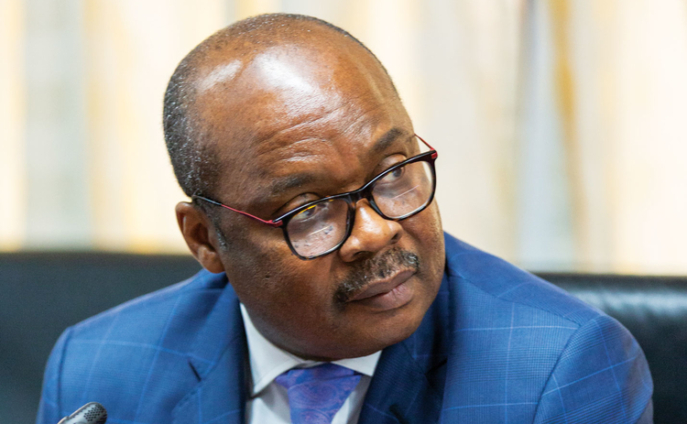The Bank of Ghana has reiterated that it remains policy solvent to generate enough income to cover costs associated with monetary policy operations.
The Bank of Ghana has reiterated that it remains policy solvent to generate enough income to cover costs associated with monetary policy operations.
This is despite the GH¢10.5 billion loss posted in 2023. The development also marks a significant improvement over the GH¢60.8 billion that the Central Bank posted in 2022.
This assurance was captured in the Bank of Ghana’s Annual Report and Financial Statement released on May 31 2024.
BoG on improving position despite loss
The Bank of Ghana in its 2023 Annual Statement maintained that the total group income generated in 2023 was GH¢8.8 billion, while total costs associated with monetary operations amounted to GH¢ 8.4 billion.
It further argued that the positive policy solvency factor of GH¢0.4 billion in 2023 indicates that it continues to be policy solvent just as it was in 2022 when a policy solvency factor of GH¢4.27 billion was recorded.
The board of the Bank of Ghana in the financial statement argued that “ the policy solvency outcome for 2023 is consistent with the view held in 2022.”
The Bank of Ghana maintained that “it will continue to operate efficiently and effectively on a going concern basis and achieve its policy mandates, despite the significant loss recorded at the time.”
It added that “A decline in inflation will support exchange rate stabilisation”
The central bank noted, “The two major expenditure items, cost of open market operations and revaluation losses arising out of exchange rate valuation, which has historically constituted over [68.67 per cent] of the total operating expenses will reduce and further improve the financial position of the Bank of Ghana.”
The Bank of Ghana revealed that through the Monetary Policy Committee, “it will continue to monitor risks in the economy and pursue policies geared towards anchoring inflation expectations and minimising exchange rate volatilities.”
Proposed turnaround measures
According to the Bank of Ghana, in addition to the expected favourable impact of macroeconomic conditions on the bank’s financial position, the board is continuing to take actionable steps to ensure a recovery and build-back of a positive equity position within the medium to long-term.
Some of these measures include refraining from monetary financing of the government of Ghana’s budget. “In this regard, the bank will continue to adhere to the terms of the Memorandum of Understanding on zero financing of the budget signed between the Bank of Ghana and the Ministry of Finance.”
It is also promising, to “continue with policy measures aimed at optimising Bank of Ghana’s investment portfolio and operating cost mix to bolster efficiency and profitability.”
The Bank of Ghana has also announced that it is working to sign a Memorandum of Understanding with the Ministry of Finance on how recapitalization will be executed by the end of the third quarter of this year.
According to the Bank of Ghana, this is within the context of the second review of the ongoing International Monetary Fund (IMF) programme on the early recapitalisation of Ghana’s central bank.
“The impact of the Domestic Debt Exchange Programme on the balance sheet of the Bank of Ghana was discussed extensively and a broad consensus was reached amongst the Ministry of Finance, the Bank of Ghana and the IMF on early recapitalisation of the Bank of Ghana” it added in its financial statement.
The board of the Bank of Ghana noted that it expects the steadfast implementation of these policy steps alongside fiscal rectitude, and continued maintenance of a tight monetary policy stance to turn this around.
It also argued that it “will provide enough basis for continued operational policy efficiency and the existence of the Bank of Ghana for the foreseeable future.”
2023 Financial Performance
The Bank of Ghana in 2023 recorded a loss of 10.5 billion Ghana cedis. This however represents a significant improvement over the 60.8 billion Ghana cedis recorded in 2022.
The loss is primarily attributed to an increase in total interest expenses on its open market operations.
The Bank of Ghana added that the combination of an increase in total income and a reduction in operating expenses led to a total loss position of GH¢10.6 billion.
The loss position was driven largely by an increase in total interest expense incurred on Open Market Operations by GH¢ 6.7 billion.
The Bank of Ghana and its subsidiaries had total liabilities surpassing total assets by GH₵65.36 billion as of December 31, 2023.
The total operating expenses for 2023 was GH₵19.2 billion, a significant decrease from the GH₵66.9 billion recorded in 2022.
Source: Joy Bsuiness

COMMENTS